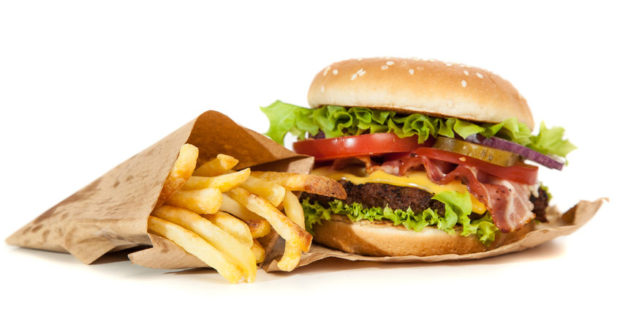Even if you’re overweight, eating too much food on a regular basis can be a tough habit to stop. This fact helps to explain the growing rate of obesity in the United States. If a report in the journal Nutrition & Diabetes is correct, the common habit could result from communication breakdown between the intestines and the brain.
Thick and Thin
Authored by a team of six US-based researchers, this study examined the eating patterns of differing groups of laboratory mice. One of these sets of rodent subjects was obese, while another measured in at a healthy weight. Every mouse was given an overabundance of food to eat.
The study authors directed their attention towards a certain hormone called uroguanylin. During previous research, the team had noticed that uroguanylin put the brakes on the appetite of rodents. Prior to conducting this particular study, it was unclear as to whether such a reaction would occur in obese mice.
A Cellular Malfunction?
The research team found that, once given an excessive amount of food, the intestines of obese mice stopped producing uroguanylin. However, overfeeding was also found to have the same effect on comparatively thin mice. The report’s lead author, Dr. Scott Waldman, stated in a press release that “it didn’t matter whether the mice were lean and overfed, or obese and overfed – uroguanylin production stopped in both groups of animals when they got too many calories.”
So how does caloric intake affect the release of uroguanylin hormones? The answer might lie in endoplasmic reticulum (ER), a component in cells tasked with manufacturing a number of important hormones. When subjected to stress, the ER might temporarily shut down.
To test this theory, the research team administered an ER-stressing chemical to laboratory mice. This chemical quickly suppressed the rodents’ production of uroguanylin. In addition, a set of overfed and obese rodents were given a substance designed to relax the endoplasmic reticulum. After receiving this treatment, the mice’s production levels of uroguanylin returned to normal.
Waldman argues that the results of his team’s multiple experiments suggest a “that excess calories – either from fat or carbohydrates – stress small intestinal cells so that they stop producing uroguanylin, which helps people feel full after eating.” In light of the study’s findings, the authors contend that hormone replacement therapy could be used to help obese individuals regain control of their diets.
 Natural Knowledge 24/7 Educate yourself with nutrition, health and fitness knowledge.
Natural Knowledge 24/7 Educate yourself with nutrition, health and fitness knowledge.






